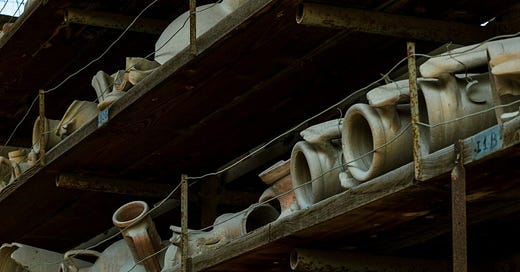Ancient Mediterranean Use of Oils
Using modern scientific literature to understand why our ancestors used and revered oil for various purposes.
The use of oils has been a staple in many cultures across time, and was employed for many uses in general, but for this essay, I want to focus on the ancient Mediterranean use of oils. The Mediterranean basin is known as Our Sea for The Romans, the Great Sea [Yam Gadol] for Jewish peoples, and the White Sea [Akdeniz] for Turkish Peoples [1]. The ancient sea consisted of a handful of civilizations that existed in the surrounding area: Mesopotamia, Egypt, Anatolia, Macedonia, Phoenicia, Carthage, civilizations in the Aegean region like Crete and mainland Greece, Byzantium, Iberia, North Africa, Sicily, Cyprus, Rome, and Baghdad [2]. Places like Morocco, Israel, Croatia, Syria, Bulgaria, Romania, Serbia, and Portugal are often included in the list of modern Mediterranean countries [3]. However, one group of people I will mention in this essay are the Etruscans, who may have been the indigenous people of the Italian Peninsula, and may have also descended from the Villanovan civilization of Italy during the Bronze Age [4], or they may have been the descendants of the people of ancient Anatolia (now known as Turkey). The Etruscans are often regarded as a civilization that both influenced Greece and Rome, and was also influenced by Egypt, Greece, and Rome. The Etruscans, although mostly seen as “pirates” in the eyes of Greece and Rome, co-existed and were integrated into Roman Society in the 4th century BC. Therefore, I believe their contribution is necessary in this essay.
Our word “cosmetics” was derived from the Greek word “kosmetika”, but it was more of a term that referenced any preparation that was applied or done to protect the skin, teeth, and hair [5]. It is the Greek word “kommotikon” that refers to beautification. It was common for ancient people of this Mediterranean area to view cleanliness and grooming from a religious aspect [6]. This is because a lot of oils, perfumes, and cosmetics were also used in the ritual of burying their dead [7]. Evidence has shown that ancient Egyptians highly valued cleanliness to prevent people from dying due to illness [8]. Because Mesopotamia influenced ancient Egyptians, and they influenced Greeks, and Greeks and Etruscans influenced Romans, we can see how the significance of sanitation kept up through time and throughout these cultures. Romans, Greeks, and Egyptians saw contracting an illness as punishment from the Gods as a consequence of sin or crime. In my opinion, it seems that cleanliness wasn’t only a way to prevent disease, but it was a way to remain spiritually pure in the eyes of their Gods, respectively. Illness was a “sign” that the Gods were angry, and appeasing the Gods was part-and-parcel of the healing process. Healing was seen as a gift from the Gods, as well as their forgiveness. As it relates to grooming and appearance, however, both women and men indulged in beautification, even in their burial rites [9]. They adorned their statues of their gods in makeup during these rituals, as well [10]. It was not socially acceptable for a Greek man to beautify himself, but many Roman athletes engaged in, what we call today, “self-care” activities. Both the Etruscan and Egyptian men and women used makeup, oils, and perfumes to clean and enhance themselves.





